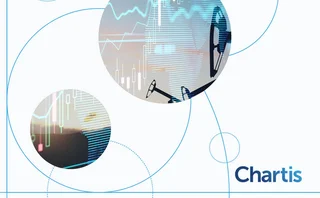
Checking up on the ‘Belgian dentist’
Dubbed the ‘Belgian dentist’, Belgium’s archetypal investor is middle class and traditionally conservative in approach. But distributors in the country are starting to market increasingly innovative products, as Paul Lyon discovers
Structured products in Belgium are a big deal. Although the country is around a sixth of the size of the United Kingdom and has only 10 million residents, the land of fine beer and chocolates punches above its weight with sales higher than the UK market’s estimated €8 billion, according to StructuredRetailProducts.com And Belgian investors are beginning to return to equity-linked products after several years’ dominance of interest-rate underlyings, marking their increased risk appetite and the growing innovation of the market.
The Belgian market is, however, highly concentrated, with just three products providers – Dexia, Fortis Investments and KBC Asset Management – commanding a 90% share of the market. As a result, competition between the distributors is rife, and observers note that new products tend to be copied by rivals as soon as they come to market.
Nevertheless, each institution appears to be making a concerted effort to distinguish itself from the crowd. And Dexia, for one, may even go a step further by becoming the first bank to offer investors the chance to buy products linked to variations in weather (see box). So far, any mention of weather in structured products has usually been no more than a marketing gimmick.
Late last year, for example, the UK’s Bristol & West bought a digital option on snow on Christmas Day as part of its hedge for the its five-year version of its income and growth product. The option would have paid 1% of subscription to each customer in shopping vouchers (from UK retailer Marks & Spencer) had it snowed at the Heathrow met station on Christmas Day.
But Dexia wants to take things further, according to Peter Audoore, in the sales and engineering area of structured products at Dexia in Brussels. Dexia, which was the first Belgian institution to offer an inflation-linked product, says that it is currently in talks with Deutsche Bank about how best to structure such a deal. Audoore admits that engineering the concept may be difficult but Deutsche is widely regarded as one of the leaders in the European weather derivatives market. And, as Audoore notes, “weather will always be a popular topic of conversation. Whether people understand the concept of the weather risk market will be another thing altogether though.”
Interesting products
As for other interesting products already on the market, Fortis Investments, which sold around e5 billion of structured products in 2004, says its ‘Safe’ products are proving to be increasingly popular. “The use of our Safe products offers the investor a protection against market volatility,” says Ali Bilge, head of structured products origination at Fortis Investments in Brussels. Bilge says the idea is to start with a portfolio 100% invested in a mixture of bonds and equities but when markets are worsening a certain percentage (determined by a quantitative model) of the portfolio is shifted into cash.
Conversely, when market conditions improve the percentage in cash is then re-invested in equities or bonds. There is no cap on the upside and, unusually for Belgium, the product does not have 100% capital protection. For the Fortis L Fund Safe Stability product (25% equities, 75% bonds) annual capital protection is 95% but for the more dynamic Fortis L Fund Safe Growth (75% equities, 25% bonds) capital protection is just 85%.
Belgian investors are also turning to CPPI structures, according to Pascal Christory, Paris-based head of structured and index products at Axa Investment Managers. “Previously in Belgium, distributors were selling only options-based products. But now they are starting to launch CPPI-based funds, which are enjoying a great deal of success,” he says. “The message in our marketing material is very simple: pick a good fund and add a guarantee overlay.”
Although Axa may not have the presence of the “big three”, the company’s Belgian revenue increased by more than the group’s global average in 2004, thanks in part to structured products activity. Unit-linked business in Belgium was up by 37% and the company says three successful structured fund launches last year had been particularly pleasing.
Opportunities
Meanwhile, KBC, which offers around eight products a month and had sales of S5.8 billion in 2004, says forex products could be a popular choice for investors this year. Although its best-selling product so far is Maxisafe – a long-term, capital-secure interest rate-linked product – Stefan Duchateau, KBC Asset management’s chief executive is acutely aware that the ‘Belgian dentist’s’ tastes are changing. Accordingly, he says, KBC makes sure that its retail branch managers are kept updated about new products and opportunities. In some cases, it is even a branch manager who comes to the table with new ideas. Hedge fund-linked products, despite being problematic from a regulatory point of view, are just one new product area that branch managers have reported demand for, he says.
Outside of Belgium, KBC is also making sure that its expertise is felt. KBC owns a clutch of small retail banks throughout eastern Europe and Duchateau says structured products are “bringing investors to the bank in general.” What’s more, Duchateau is also looking for a joint-venture partner for KBC’s new Shanghai operation. Although he can’t reveal who the possible contenders are, he does say that he hopes to distribute structured products – most likely capital-protected funds – in China next year.
Similarly, Fortis’ Bilge has just returned from a two-week business trip to Jakarta, Tokyo, Shanghai and Hong Kong. Belgium, it seems, will soon be as famed for its financial innovation as for its beer.
| Weather risks |
| The weather derivatives market originally began life in 1996, when US energy companies such as Aquila and the now defunct Enron found ways to hedge against seasonal variations in temperature. Long the preserve of energy companies looking to protect themselves from falls in demand for electricity in cold summers, for example, the market has picked up in recent years and is now actively traded by hedge funds. Investment banks such as Deutsche and Merrill Lynch, and reinsurance companies such as Swiss Re also offer weather risk services, and the market had a notional value of $4.6 billion in 2004, according to the Washington DC-based Weather Risk Management Association. What’s more, the market appears to be taking off thanks to the success of the exchange-traded weather contracts at the Chicago Mercantile Exchange (CME) in the US, Europe and Japan. In WRMA’s 2004 survey the CME reported 21,335 trades compared with 7,239 for 2003. And notional volumes for CME trades were worth around $1.7 billion in 2004, compared to approximately $750 million in 2003. These developments could make it possible for distributors to launch structured products based on weather indexes, notes Hans Esser, managing director of German weather risk consultancy Finanz-Trainer.com. But Esser also points out that many institutions, besides Dexia, have talked about these possibilities without committing themselves to a definite launch. One of Dexia’s fiercest rivals, Dutch bank ABN Amro, has however, already offered its retail investors some interesting weather-related products. During the summer months the bank offers its retail customers the chance effectively to bet on the weather, by raising interest rates on savings accounts if the summer proves to be colder than expected. |
Only users who have a paid subscription or are part of a corporate subscription are able to print or copy content.
To access these options, along with all other subscription benefits, please contact info@risk.net or view our subscription options here: http://subscriptions.risk.net/subscribe
You are currently unable to print this content. Please contact info@risk.net to find out more.
You are currently unable to copy this content. Please contact info@risk.net to find out more.
Copyright Infopro Digital Limited. All rights reserved.
As outlined in our terms and conditions, https://www.infopro-digital.com/terms-and-conditions/subscriptions/ (point 2.4), printing is limited to a single copy.
If you would like to purchase additional rights please email info@risk.net
Copyright Infopro Digital Limited. All rights reserved.
You may share this content using our article tools. As outlined in our terms and conditions, https://www.infopro-digital.com/terms-and-conditions/subscriptions/ (clause 2.4), an Authorised User may only make one copy of the materials for their own personal use. You must also comply with the restrictions in clause 2.5.
If you would like to purchase additional rights please email info@risk.net
More on Energy
ETRM systems 2024: market update and vendor landscape
This Chartis report evaluates energy trading and risk management systems that provide front-to-back, asset class-specific and geography-specific coverage, and considers the full energy trade lifecycle
CTRM systems 2024: market update and vendor landscape
A Chartis report on commodity trading and risk management systems that considers its different applications and addresses the market and vendor dynamics to determine the long-term and structural impacts of the overarching market evolution on the…
Energy Risk Commodity Rankings 2024: markets buffeted by geopolitics and economic woes
Winners of the 2024 Commodity Rankings steeled clients to navigate competing forces
Chartis Energy50
The latest iteration of Chartis’ Energy50 ranking
Energy trade surveillance solutions 2023: market and vendor landscape
The market for energy trading surveillance solutions, though small, is expanding as specialist vendors emerge, catering to diverse geographies and market specifics. These vendors, which originate from various sectors, contribute further to the market’s…
Achieving net zero with carbon offsets: best practices and what to avoid
A survey by Risk.net and ION Commodities found that firms are wary of using carbon offsets in their net-zero strategies. While this is understandable, given the reputational risk of many offset projects, it is likely to be extremely difficult and more…
Chartis Energy50 2023
The latest iteration of Chartis' Energy50 2023 ranking and report considers the key issues in today’s energy space, and assesses the vendors operating within it
ION Commodities: spotlight on risk management trends
Energy Risk Software Rankings and awards winner’s interview: ION Commodities







